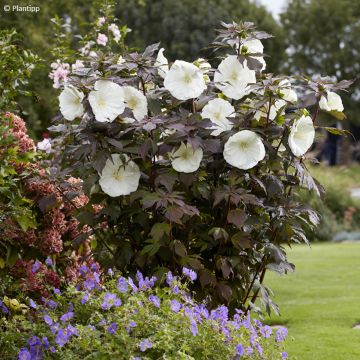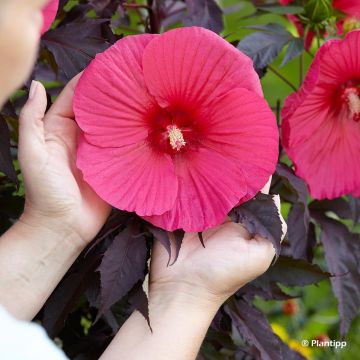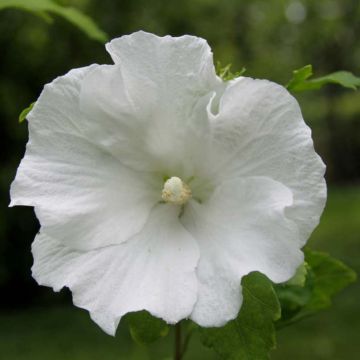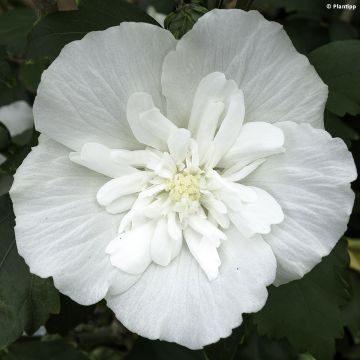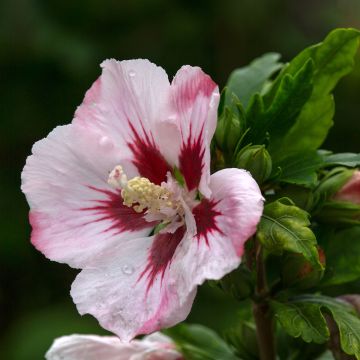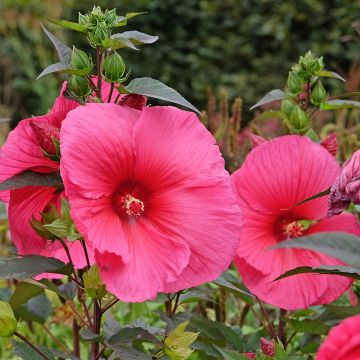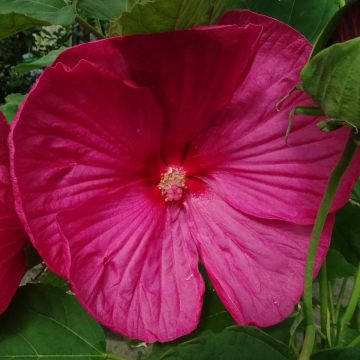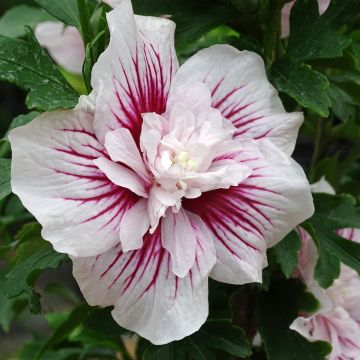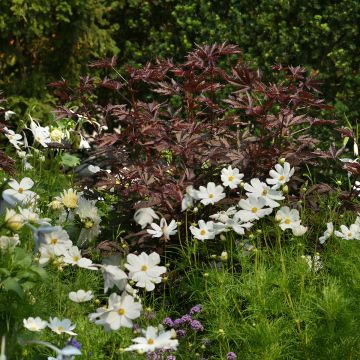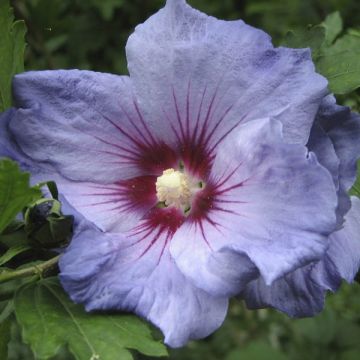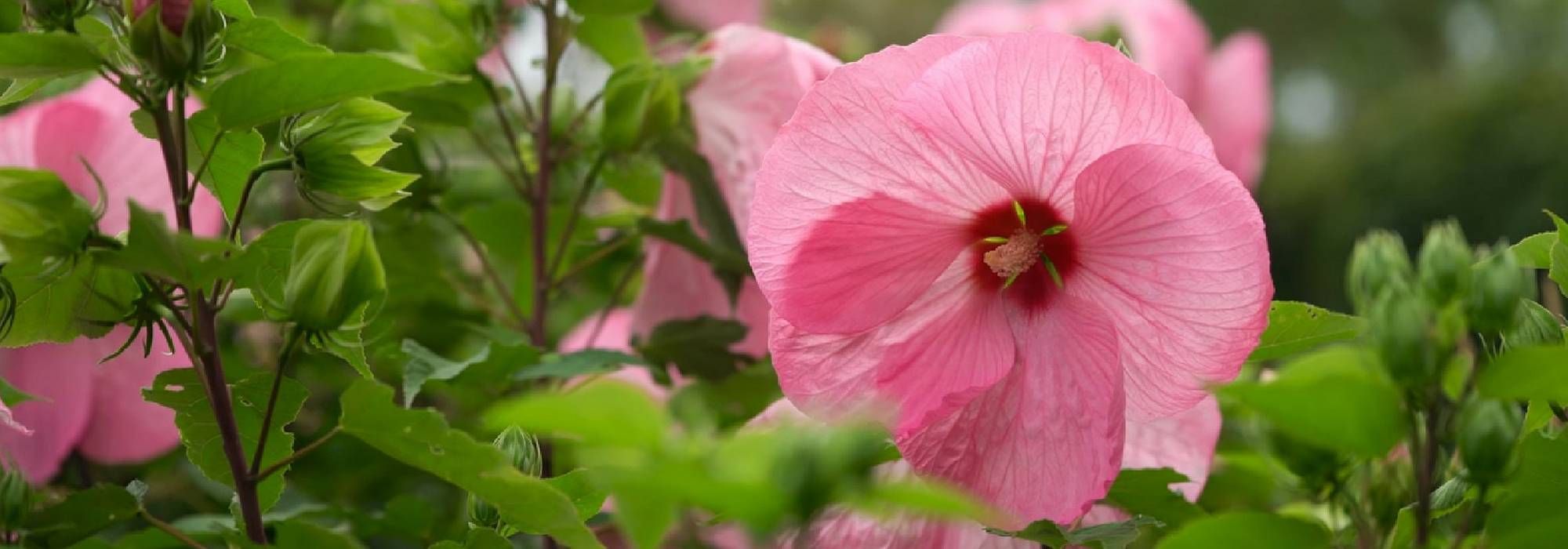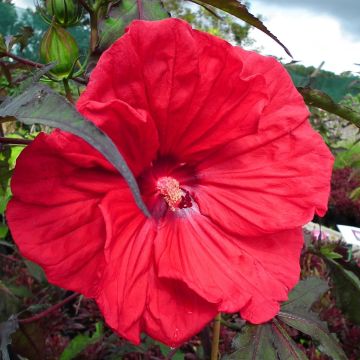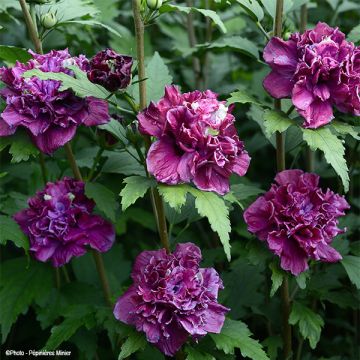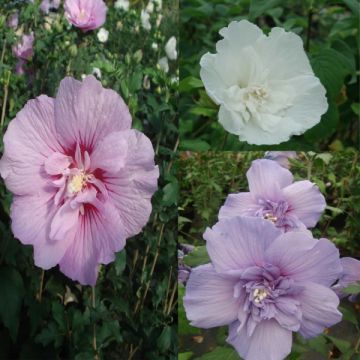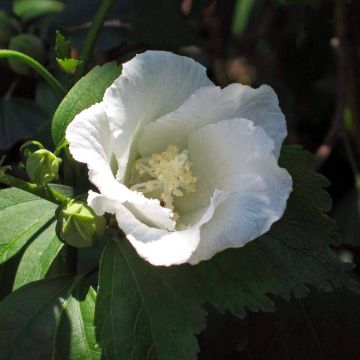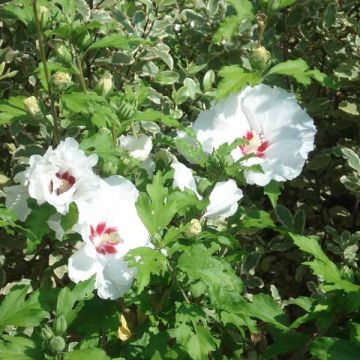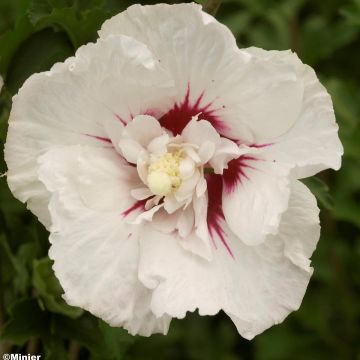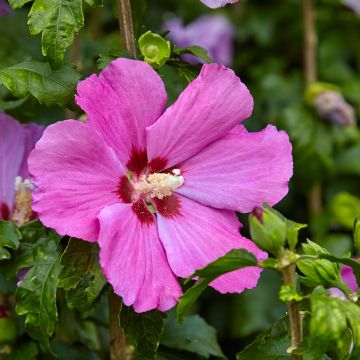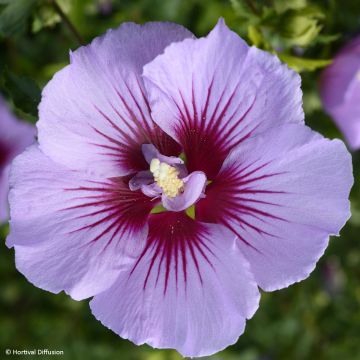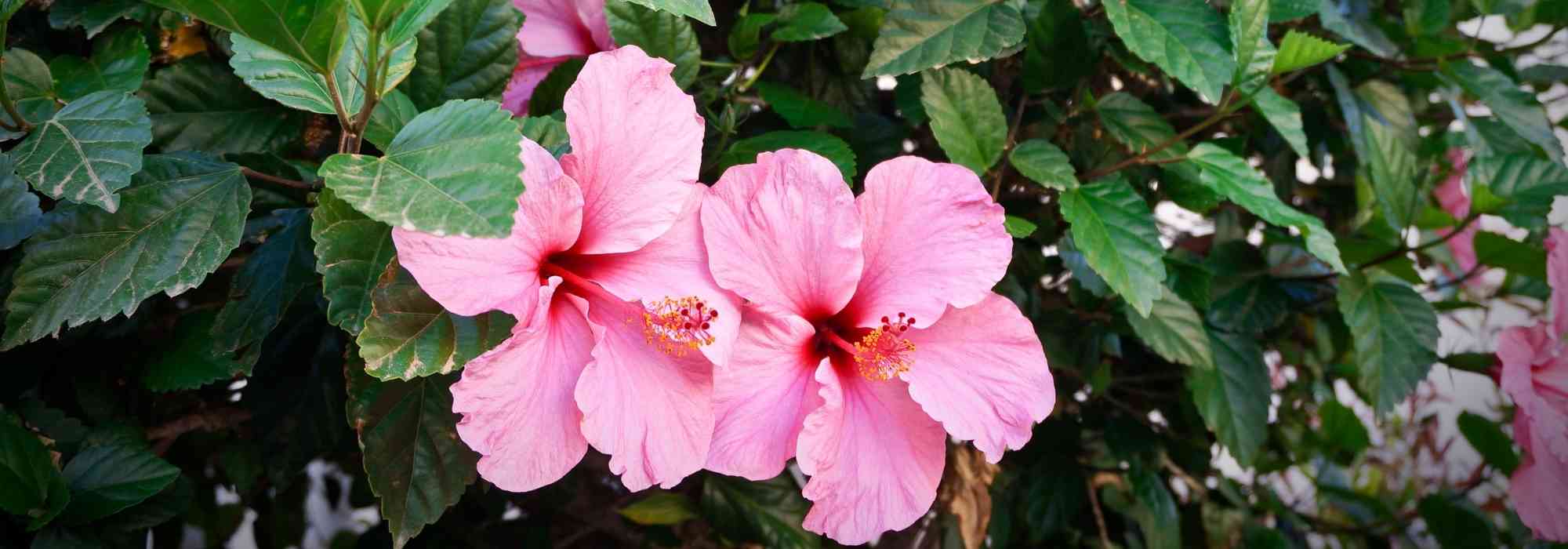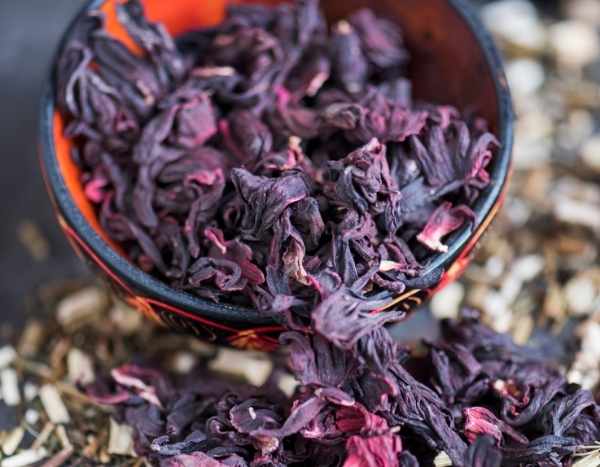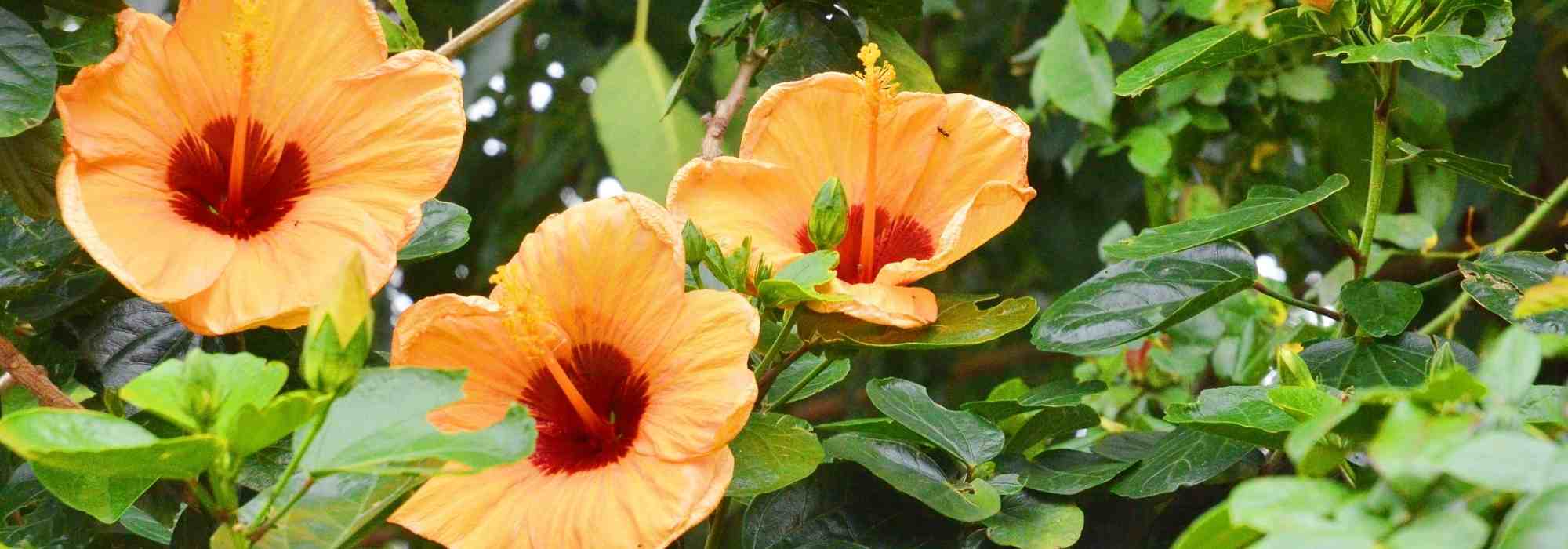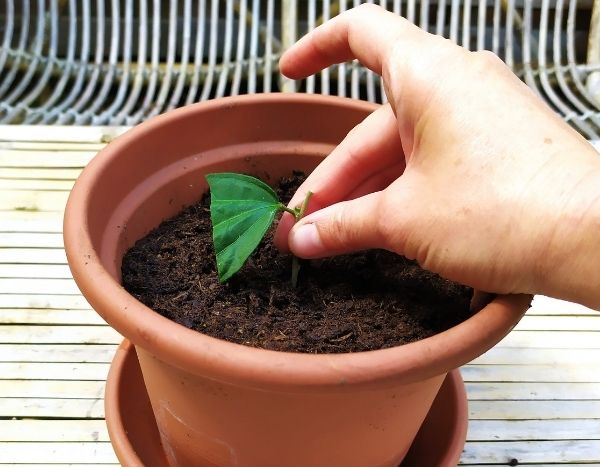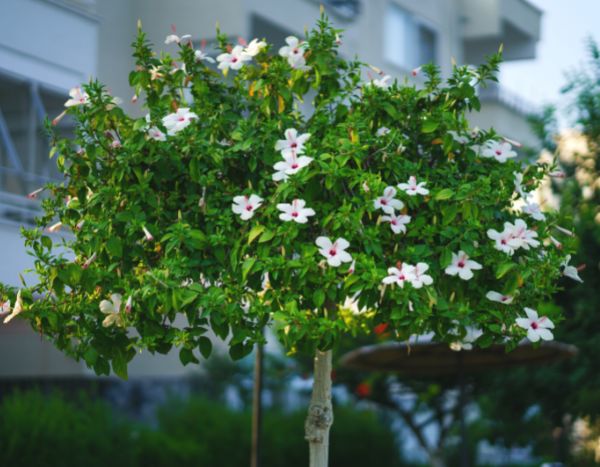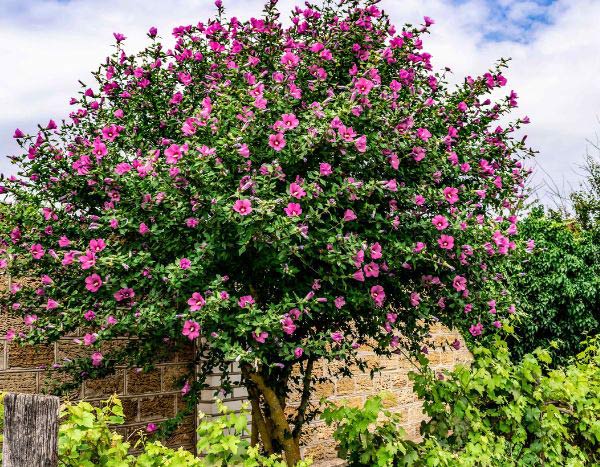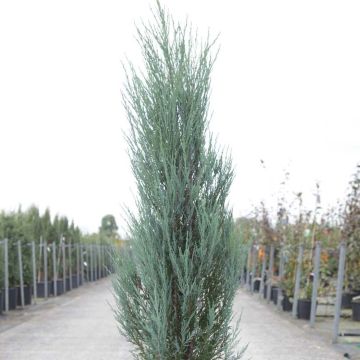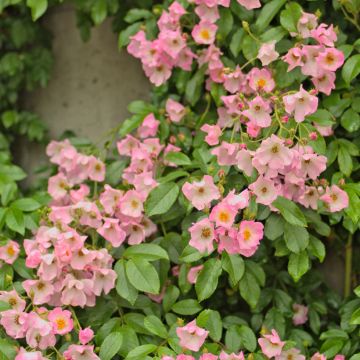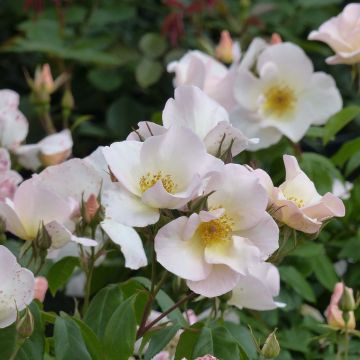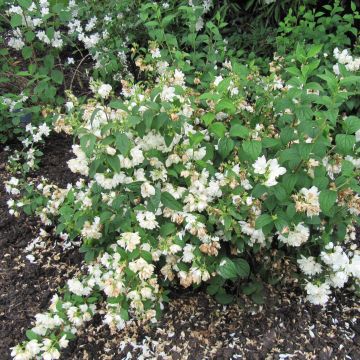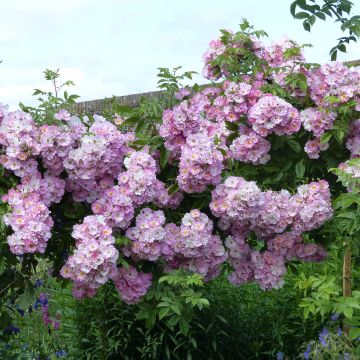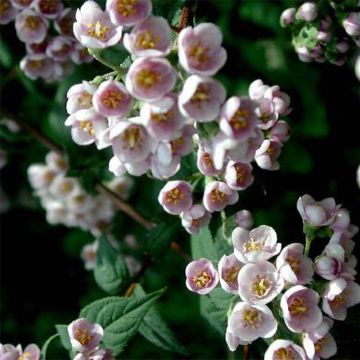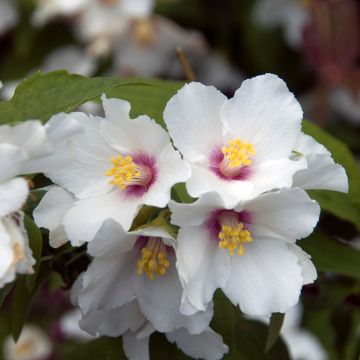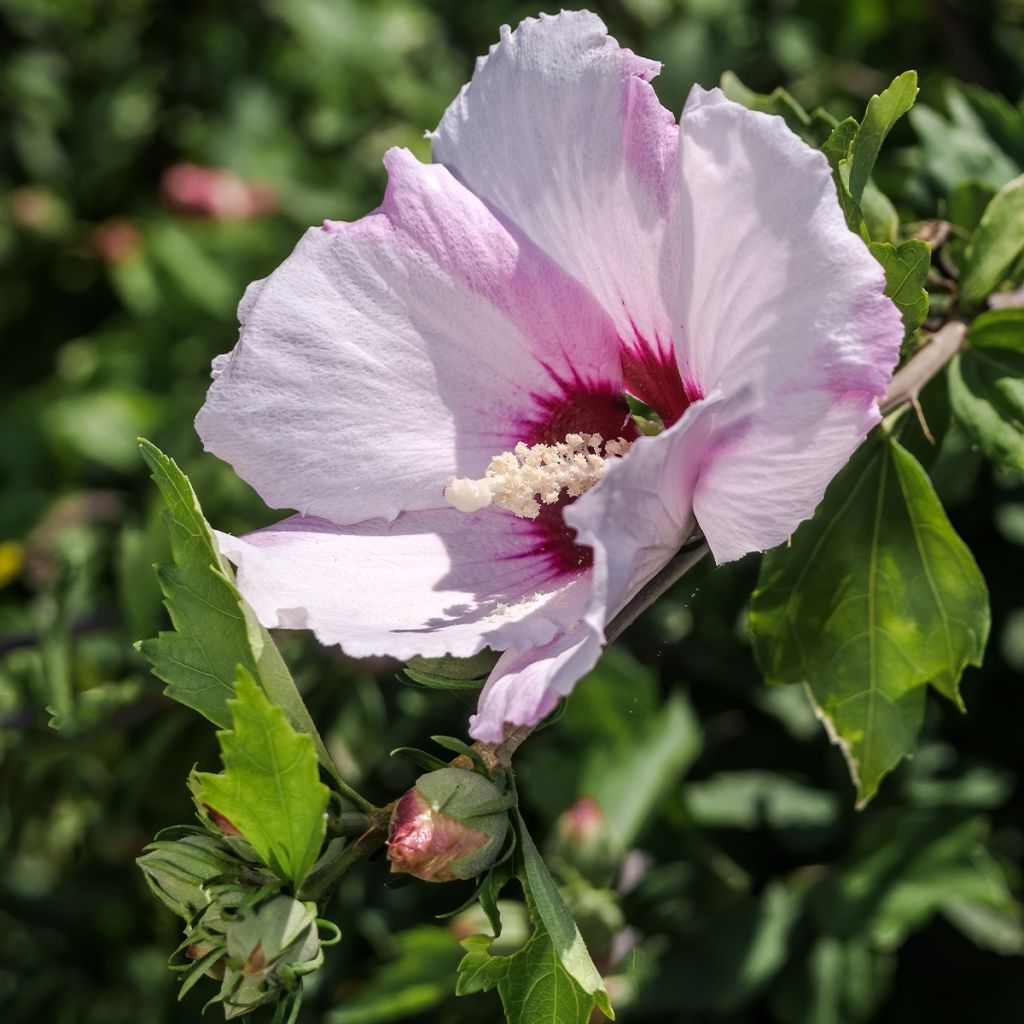

Hibiscus syriacus ROSSO - Rose of Sharon
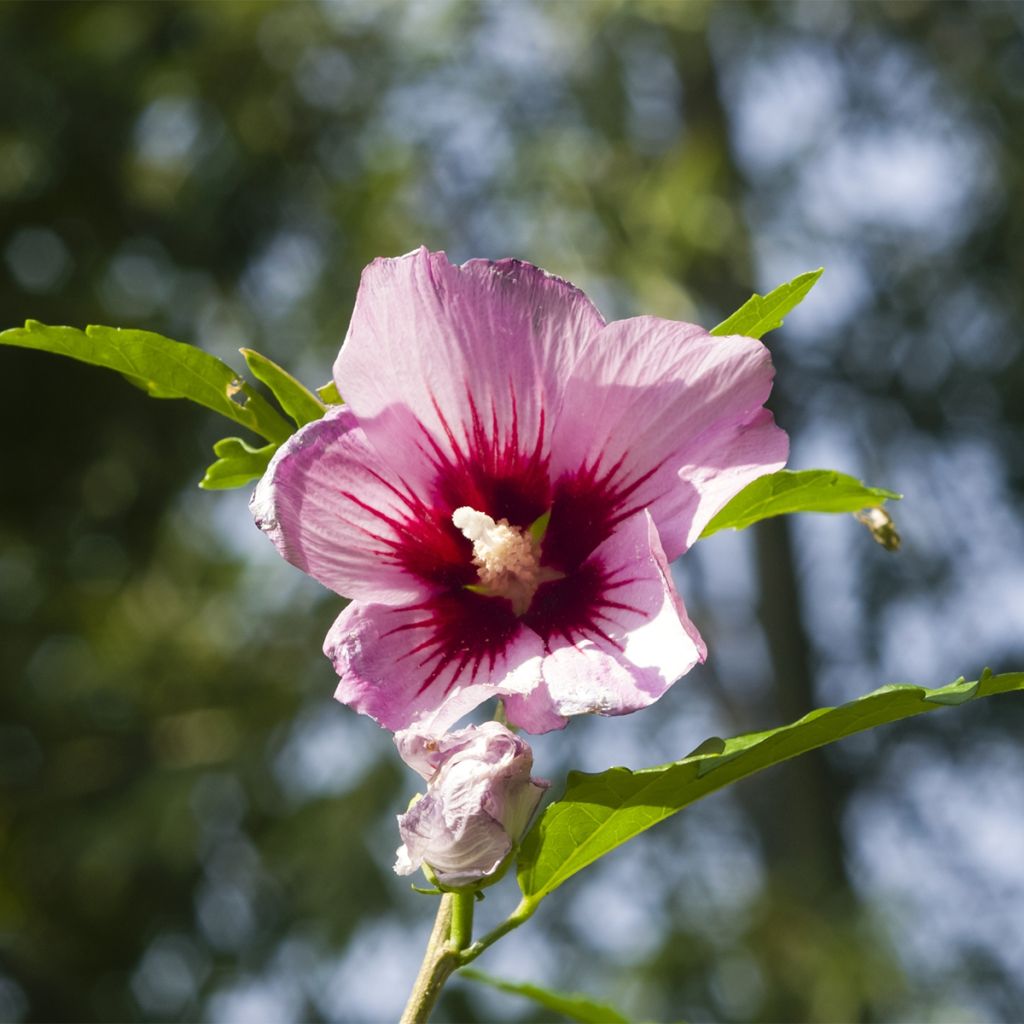

Hibiscus syriacus ROSSO - Rose of Sharon
Hibiscus syriacus ROSSO - Rose of Sharon
Hibiscus syriacus ROSSO®
Common Hibiscus, Rose of Sharon, Syrian ketmia, St Joseph's rod, Garden Hibiscus
Special offer!
Receive a €20 voucher for any order over €90 (excluding delivery costs, credit notes, and plastic-free options)!
1- Add your favorite plants to your cart.
2- Once you have reached €90, confirm your order (you can even choose the delivery date!).
3- As soon as your order is shipped, you will receive an email containing your voucher code, valid for 3 months (90 days).
Your voucher is unique and can only be used once, for any order with a minimum value of €20, excluding delivery costs.
Can be combined with other current offers, non-divisible and non-refundable.
Why not try an alternative variety in stock?
View all →This plant carries a 24 months recovery warranty
More information
We guarantee the quality of our plants for a full growing cycle, and will replace at our expense any plant that fails to recover under normal climatic and planting conditions.
Does this plant fit my garden?
Set up your Plantfit profile →
Description
Hibiscus syriacus Rosso is a recent variety of Mauve tree that forms a well-branched bush of medium size, with a beautiful pink flowering with a Bordeaux red heart. This generous bush is in bloom from July to October, as long as the weather is mild, and it withstands our winters despite its exotic appearance. It deserves a prominent place near the house, in the centre of a perennial bed, or even within a diverse hedge. Hibiscus syriacus is easy to grow in non-scorching sun or partial shade in warm climates, in a soil that remains slightly moist, even limestone, under all climates.
Hibiscus syriacus, sometimes called Garden Hibiscus, is a hardy deciduous bush in our climates, but evergreen in warm climates, belonging to the Malvaceae family, just like the hollyhocks and marshmallows. The Hibiscus genus includes both tropical shrubs or small trees, such as the well-known Hibiscus rosa-sinensis or the rarer H. schizopetalus with intricately laced flowers like Calais lace, perennial plants like H. moscheutos whose flowers of certain varieties can reach 25cm (9.8in) in diameter, and H. syriacus, a hardy bush even in colder regions. It is native to temperate regions of Asia and has given rise to numerous cultivars, including this lovely variety Rosso.
Hibiscus Rosso is part of a complete range (Azzuri, Bianco, Cielo, Pastello) selected for its abundant flowering and ease of cultivation. Rosso has an upright, bushy, and dense habit, reaching a height of no more than 2.20m (7ft 2in) with a spread of 1.50m. Its foliage is well-filled, fairly dark green, slightly glossy, and finely cut along the edges. Flowering starts in July and continues until September-October. Each flower only lasts for one day, but they are produced in large numbers on the branches. This Rosso variety offers corollas of 8-9cm in cups of a tender pink, with a Bordeaux red macule stretching into fine streaks that extend outward.
This bush is easy to grow, tolerating most soils, especially limestone soils, provided they are sufficiently deep. It appreciates being watered from time to time in summer but can withstand dry periods when well established. Its leaves may then tend to turn slightly yellow, detracting from its beautiful ornamental appearance. This bush resists temperatures of around -15 °C, in well-draining soil.
Hibiscus Rosso, truly charming, is not a delicate and capricious plant. It can be grown in all our regions, especially in small gardens. Create flower beds that bloom all year round by associating it with shrubs that flower at a different time than it does. To enchant winter and early spring, go for Daphne 'Perfume Princess', a fabulous shrub with extremely fragrant candy pink flowers from January to April. The Coronille des jardins (Coronilla emerus) will take over with its butterfly-like flowers in bright yellow from April-May to July, which will precede those of our Hibiscus. And to accompany it until autumn, plant a clump of Purple Coneflower (Echinacea purpurea) at its base, a beautiful perennial with rose-purple flowers from July to October.
Hibiscus syriacus ROSSO - Rose of Sharon in pictures
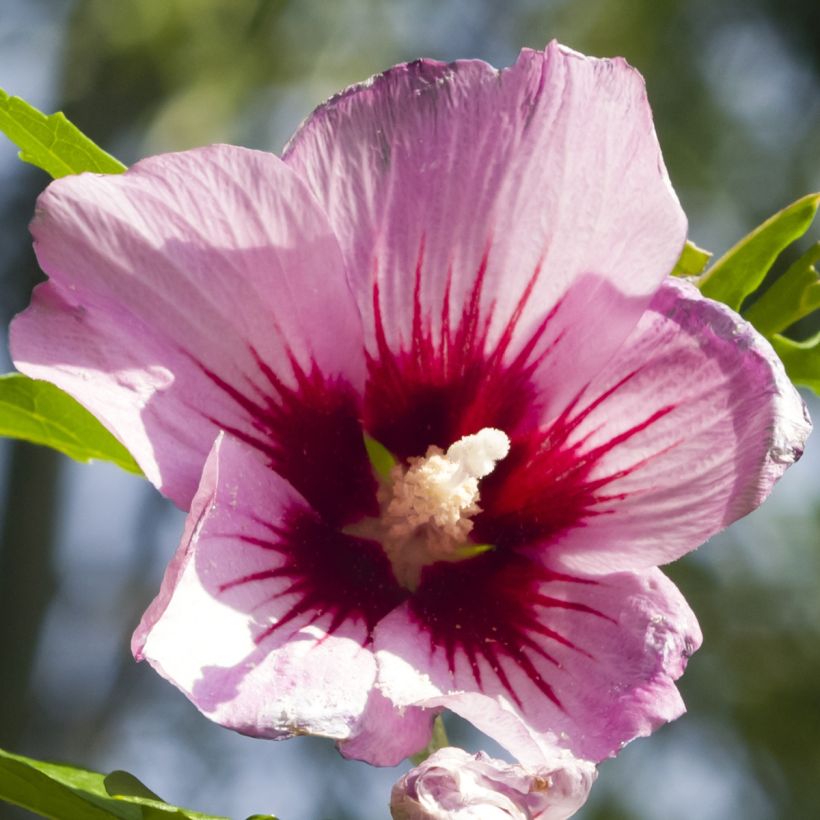

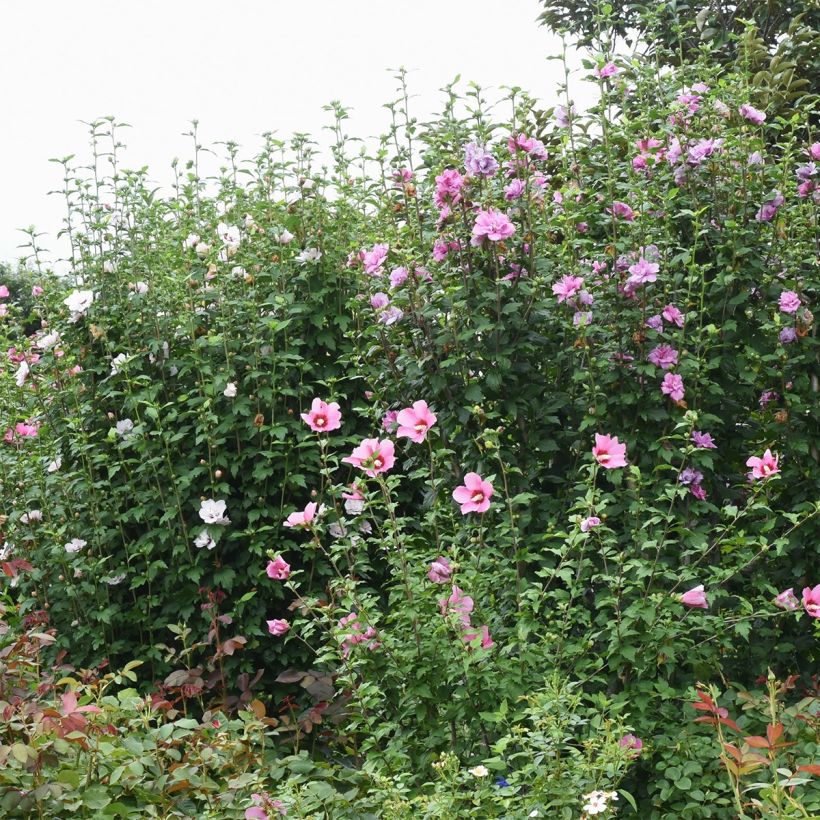

Plant habit
Flowering
Foliage
Botanical data
Hibiscus
syriacus
ROSSO®
Malvaceae
Common Hibiscus, Rose of Sharon, Syrian ketmia, St Joseph's rod, Garden Hibiscus
Cultivar or hybrid
Other Hibiscus
View all →Planting and care
Plant the Rosso Hibiscus syriacus in spring or autumn, in a sunny location, or possibly in partial shade in southern regions, in a well-drained, loose, fertile soil. Dig a deep planting hole, add some compost and sand to your garden soil to improve soil quality if necessary. Water generously after planting. Don't worry if the vegetation doesn't start before May, it's completely normal for this bush.
While Hibiscuas can tolerate heat and occasionally dry soils, they are more beautiful and more floriferous in a soil that retains moisture in summer. Mulch the base of these generous bushes if needed, to maintain moisture above the roots.
Planting period
Intended location
Care
Planting & care advice
This item has not been reviewed yet - be the first to leave a review about it.
Similar products
Haven't found what you were looking for?
Hardiness is the lowest winter temperature a plant can endure without suffering serious damage or even dying. However, hardiness is affected by location (a sheltered area, such as a patio), protection (winter cover) and soil type (hardiness is improved by well-drained soil).

Photo Sharing Terms & Conditions
In order to encourage gardeners to interact and share their experiences, Promesse de fleurs offers various media enabling content to be uploaded onto its Site - in particular via the ‘Photo sharing’ module.
The User agrees to refrain from:
- Posting any content that is illegal, prejudicial, insulting, racist, inciteful to hatred, revisionist, contrary to public decency, that infringes on privacy or on the privacy rights of third parties, in particular the publicity rights of persons and goods, intellectual property rights, or the right to privacy.
- Submitting content on behalf of a third party;
- Impersonate the identity of a third party and/or publish any personal information about a third party;
In general, the User undertakes to refrain from any unethical behaviour.
All Content (in particular text, comments, files, images, photos, videos, creative works, etc.), which may be subject to property or intellectual property rights, image or other private rights, shall remain the property of the User, subject to the limited rights granted by the terms of the licence granted by Promesse de fleurs as stated below. Users are at liberty to publish or not to publish such Content on the Site, notably via the ‘Photo Sharing’ facility, and accept that this Content shall be made public and freely accessible, notably on the Internet.
Users further acknowledge, undertake to have ,and guarantee that they hold all necessary rights and permissions to publish such material on the Site, in particular with regard to the legislation in force pertaining to any privacy, property, intellectual property, image, or contractual rights, or rights of any other nature. By publishing such Content on the Site, Users acknowledge accepting full liability as publishers of the Content within the meaning of the law, and grant Promesse de fleurs, free of charge, an inclusive, worldwide licence for the said Content for the entire duration of its publication, including all reproduction, representation, up/downloading, displaying, performing, transmission, and storage rights.
Users also grant permission for their name to be linked to the Content and accept that this link may not always be made available.
By engaging in posting material, Users consent to their Content becoming automatically accessible on the Internet, in particular on other sites and/or blogs and/or web pages of the Promesse de fleurs site, including in particular social pages and the Promesse de fleurs catalogue.
Users may secure the removal of entrusted content free of charge by issuing a simple request via our contact form.
The flowering period indicated on our website applies to countries and regions located in USDA zone 8 (France, the United Kingdom, Ireland, the Netherlands, etc.)
It will vary according to where you live:
- In zones 9 to 10 (Italy, Spain, Greece, etc.), flowering will occur about 2 to 4 weeks earlier.
- In zones 6 to 7 (Germany, Poland, Slovenia, and lower mountainous regions), flowering will be delayed by 2 to 3 weeks.
- In zone 5 (Central Europe, Scandinavia), blooming will be delayed by 3 to 5 weeks.
In temperate climates, pruning of spring-flowering shrubs (forsythia, spireas, etc.) should be done just after flowering.
Pruning of summer-flowering shrubs (Indian Lilac, Perovskia, etc.) can be done in winter or spring.
In cold regions as well as with frost-sensitive plants, avoid pruning too early when severe frosts may still occur.
The planting period indicated on our website applies to countries and regions located in USDA zone 8 (France, United Kingdom, Ireland, Netherlands).
It will vary according to where you live:
- In Mediterranean zones (Marseille, Madrid, Milan, etc.), autumn and winter are the best planting periods.
- In continental zones (Strasbourg, Munich, Vienna, etc.), delay planting by 2 to 3 weeks in spring and bring it forward by 2 to 4 weeks in autumn.
- In mountainous regions (the Alps, Pyrenees, Carpathians, etc.), it is best to plant in late spring (May-June) or late summer (August-September).
The harvesting period indicated on our website applies to countries and regions in USDA zone 8 (France, England, Ireland, the Netherlands).
In colder areas (Scandinavia, Poland, Austria...) fruit and vegetable harvests are likely to be delayed by 3-4 weeks.
In warmer areas (Italy, Spain, Greece, etc.), harvesting will probably take place earlier, depending on weather conditions.
The sowing periods indicated on our website apply to countries and regions within USDA Zone 8 (France, UK, Ireland, Netherlands).
In colder areas (Scandinavia, Poland, Austria...), delay any outdoor sowing by 3-4 weeks, or sow under glass.
In warmer climes (Italy, Spain, Greece, etc.), bring outdoor sowing forward by a few weeks.






























